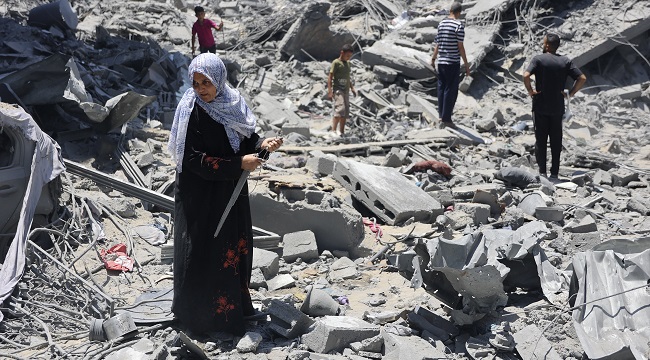Since the unprecedented October 7 attack by Hamas, the number of women applying for gun permits in Israel has dramatically increased, reflecting a heightened sense of insecurity. Security ministry data indicates that there have been 42,000 applications from women, with 18,000 approvals, significantly more than the pre-war figures.
This surge has been facilitated by relaxed gun laws under Israel’s right-wing government and its far-right security minister, Itamar Ben Gvir. Currently, more than 15,000 women civilians in Israel and the occupied West Bank own firearms, with 10,000 undergoing mandatory training.
Limor Gonen, a political science professor, is among those who never considered owning a weapon before October 7.
She now finds herself in a weapons handling class, driven by a need for self-defense following the attack that resulted in the deaths of 1,194 people in Israel, mostly civilians. Israel’s retaliatory actions have led to at least 37,431 deaths in Gaza, predominantly civilians.
“We were all targeted on October 7, and I don’t want to be taken by surprise,” Gonen explained, highlighting a sentiment shared by many.
Even before the Hamas attack, Ben Gvir was committed to reforming firearm legislation to boost self-defense capabilities among civilians. This has included accelerating the gun permit process, with reports of hundreds of permits being cleared daily post-attack.
Eligibility criteria for gun ownership in Israel include citizenship or permanent residency, being over 18, basic Hebrew proficiency, and medical clearance. These requirements make it nearly impossible for non-Jews to obtain permits.
The increase in civilian gun ownership has faced criticism, particularly from feminist groups. The Gun Free Kitchen Tables Coalition condemned the trend as a far-right strategy that falsely portrays arming women as a feminist act. They argue that more weapons in civilian hands could lead to increased violence and murder against women.
Despite the criticisms, many women, like Yahel Reznik in the West Bank settlement of Ariel, feel more secure with firearms. Reznik believes her training will enable her to defend herself and others from potential attacks.
The violence in the West Bank has escalated since October 7, with 549 Palestinians killed by Israeli settlers and troops, and attacks by Palestinians resulting in 14 Israeli deaths.
READ ALSO: Hamas And Fatah Talks To Focus On Post-War Governance, Despite Deep Divisions
Similarly, in the Israeli city of Netanya, Corine Nissim, an English teacher, now routinely carries a 9mm Smith & Wesson. Nissim, who was initially met with surprise from her community, feels empowered by her ability to protect her family.
“After October 7, I realized that the only person I can trust is myself,” she said, reflecting a common sentiment that has driven many Israeli women to arm themselves in the wake of the attack.
The surge in gun permit applications among Israeli women underscores a deep-seated need for personal security in a time of heightened tension. While the move has been facilitated by recent legislative changes, it has also sparked significant debate about the implications of increased civilian gun ownership on societal safety.










